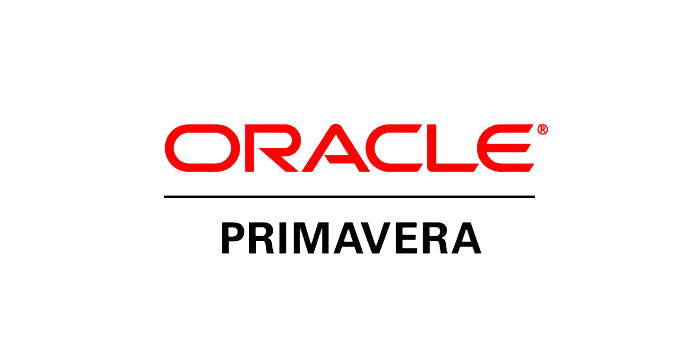
Despite economic uncertainty, a major downturn may not be on the horizon for the construction industry. At the 2025 ABC Convention, leading economists and industry experts shared key insights on what’s driving construction demand, workforce trends, and strategies to navigate shifting market conditions. Their message? Smart planning and adaptability will be critical for success in the years ahead.
Here are the insights shared on ConstructionExec.com:
“The most salient aspect of life for consumers, contractors and the average American is the elevated rate of inflation.” Anirban Basu began his address to the crowd at ABC Convention 2025 with the one thing that’s been top of mind for Americans for the last half-decade. While inflation rates are indeed high and will most likely remain so, Basu encouraged contractors not to fear recession just yet.
Here are the top takeaways:
INFLATION
- "The American people have dealt with excess inflation for now nearly 4 years."
- "Between January 2024 and January 2025 inflation is measured at 2.8% (all items less food and energy/3.3% (all items). We are not getting close to 2%; this of course will impact interest rates."
- "May 2020 is the baseline. That is the first month of this economic expansion. The official end date for recession was April 2020. A price comparison to January 2025 reads: Overall inflation in 4.5 years is around 25%, including for materials, shelter, shipping, all affecting the construction sector."
- “I take every Uber or Lyft ride as an opportunity to interview an American. People are having a tough time keeping up.”
- “There are certainly policy pronouncements that people talk about as maybe inflationary. I cannot ignore policy in trying to predict what’s going to happen with the economy:
- Extend the expiring 2017 TCJA
- Reduction in corporate tax rate to 15%
- Eliminate income taxes and social security payments
- Eliminate taxes on tips
- 10-25% Tariffs on imports
- Mass deportations of undocumented migrants
- “These would all tend to be inflationary. You put all that together, prices are set to rise, which is the concern of most of all of you in this room.
- “One could argue there are certain policy proposals that are deflationary
- DOGE
- “Is all this really just posturing? We’ve only seen the tariff on the Chinese, the rest is just talk. I cannot see inflation going back to 2%. It’s not there in the data. These policies would push us further away from 2%. The federal reserve cannot reduce rates. Now the market is saying there will be maybe two rate cuts in 2025 as opposed to predicted six.”
GROWTH
- “I did not think the us economy would have performed so brilliantly when the borrowing costs have advanced so much. The U.S. economy is on pace to grow 2.3%."
- “The consumer has been on a spending tear on services like travel; Beyonce concert tickets; Taylor Swift concert tickets. The average resale Taylor Swift ticket sold for $1,609 per ticket. She generated $300 million of economic impact in four days in Australia. This thing between her and Travis Kelce is the greatest thing ever. It’s exactly what this country needed during these emotional times. There are reasons for hope, because when that breakup occurs, the music will flow and I for one cannot wait.”
- “Something else that happened during a period of high interest rates I did not expect is the average American us household got a whole lot richer.”
- "The bottom 50% of the U.S. population controls only 2.4% of the U.S. economy."
LABOR
- "U.S job openings have been falling recently, but we have more job openings than we did prepandemic. There are more job openings in America than there are unemployed people, which is impressive. Construction employment: 2024 averaged 316,000 job openings, 2025 averaged 217,000 job openings."
- "The problem is not so much a worker shortage but a skilled-worker shortage. Retirement of skilled workers plays into that."
- "It is still a pretty strong labor market, despite that, and the recent wildfires and polar vortex."
- "U.S. jobs recovered since February 2020 in the construction industry: 681,000. Contractors have been hiring like mad. Construction employment growth has outstripped the national growth 2-to-1. Lots are hiring. It’s an industry that is hiring across the country."
- "When you look at the rates of unemployment across the 25 largest metro areas, the rates of unemployment are not very high but they are higher than they were."
- "You often hear on Bloomberg this notion that the economy is softening. You do see some weakening around the edges at least in certain parts of the country."
- "Job openings are down, unemployment is higher. Does that mean construction wage levels won’t grow like they have been? Historically construction workers have made more than their private sector counterparts (prepandemic 21.7% more, now 18.5% more). The construction wage premium has fallen. The average worker makes far more than they ever have, but in other sectors their premiums are rising."
RISKS
- "Can consumers continue to spend like they have been? Once an individual obtains a certain standard of living, they don’t want to give that up, even it that standard is driven by something like stimulus payments. How do they maintain that when stimulus runs out? They turn to the credit card, the debt of which is spiking."
- "Credit card delinquencies are up in America; missed payments on rent are up; this does not mean recession is coming, but many Americans cannot continue to spend like they have been, hence customers at Starbucks disappear."
- "Interest rates are not falling; the window to refinance is closing; U.S. commercial real estate foreclosures are rising and have been since 2023, which leaves bankers reluctant to lend in that real estate space."
- "A category to watch for is power. I think you’ll see that segment take off (compared to spending in other non-residential construction subsectors). Business travel has not come back with a vengeance. There is still lots of remote work and zooming. The office category (which is growing) includes construction data centers."
OVERALL
"The construction industry is very fragmented and competitive. It is akin to something approaching perfect competition in terms of economic theory. With all this tariff talk and rises in materials prices, our average contractor expects their margins to be rising in the next six months, which means our construction economy is quite strong."
DON'T MISS: Basu’s first economic update and forecast webinar of 2025 will take place on April 2. He will give an up-to-date presentation on his economic data and predictions as the market continues to shift.













